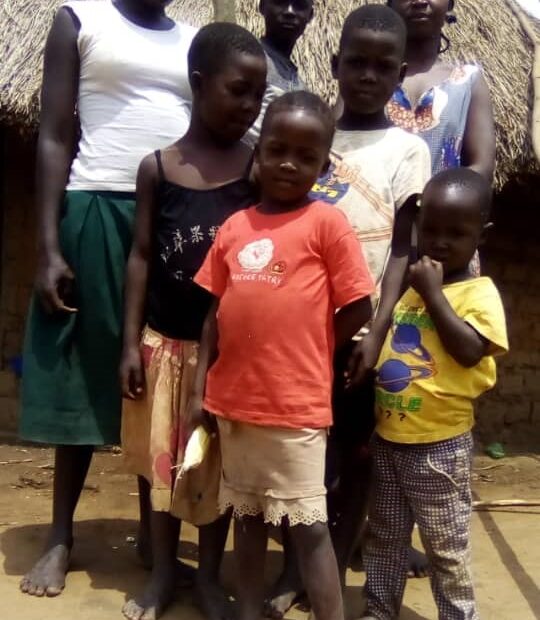By Akello Gladys Evarine, NCF Program Officer, Protection & GBV,
Email: gladys.akello@nwoyacharity.org
More than a decade since it first drew international attention, Nodding Syndrome—a mysterious and devastating neurological condition—continues to cast a long shadow over hundreds of children in Northern Uganda. Yet despite early bursts of media coverage, research, and policy debate, the plight of children affected by this condition has largely faded from national discourse. In districts like Kitgum, Pader, Lamwo, and Omoro, entire families are still silently struggling with the effects of a condition they neither caused nor fully understand.
It is time to reawaken national concern and mobilize urgent support for a generation being quietly lost to neglect.
The scope of the problem
According to the Ministry of Health and local government statistics:
- Over 3,000 children have been reported to suffer from nodding syndrome since the early 2000s, with the highest concentration in the Acholi sub-region.
- In Nwoya District alone, over 200 children have been affected, with many experiencing long-term physical and cognitive disabilities.
- A 2020 assessment by local health officials revealed that more than 60% of these children had dropped out of school due to seizures, stigma, or lack of special needs support.
- Caregiver fatigue is high: approximately 70% of affected families are headed by single mothers or elderly grandparents, many of whom lack both the resources and the knowledge to provide adequate care.
Despite these figures, national programs and budget allocations for nodding syndrome care have stagnated or disappeared entirely. Several treatment centers remain under-resourced, with frequent shortages of anti-epileptic drugs and virtually no psychosocial support.
The human toll: A Forgotten Generation
Children with Nodding Syndrome suffer from repetitive, involuntary head-nodding episodes that often lead to physical injury, malnutrition, and cognitive decline. Many develop severe seizures, lose the ability to walk or speak clearly, or regress developmentally. Those who survive into adolescence often require full-time care, making it nearly impossible for families to pursue stable livelihoods.
“My daughter used to be very bright in school, but now she cannot even hold a pencil,” says Alice A., a mother from Ajan, Amilobo, Pader. “She drools, she forgets things, and I have to bathe and feed her like a baby.”
The stigma is just as brutal. Children with nodding syndrome are often considered cursed, resulting in social isolation, exclusion from education, and sometimes even violence or abandonment.
Why the Silence?
Initially, nodding syndrome captured national headlines and attracted researchers from around the world, including the World Health Organization and the U.S. Centers for Disease Control. However, as no definitive cause was found—despite hypotheses linking it to onchocerciasis (river blindness), malnutrition, or environmental toxins—public interest waned.
What remains today is a scientific mystery and a humanitarian emergency that has been pushed to the margins of national health priorities.
Reigniting Action: What Needs to Be Done
Reawakening attention to nodding syndrome is not just about science—it’s about justice, inclusion, and human dignity. Here are some critical steps that need to be taken:
- Strengthen local health systems: Ensure regular supply of anti-epileptic drugs and train frontline health workers on managing the syndrome’s symptoms and complications.
- Scale up inclusive education programs: Provide tailored support, special-needs teachers, and school infrastructure that accommodates children with neurological impairments.
- Fund caregiver support and respite services: Many families are overwhelmed and need emotional, financial, and logistical support to continue caring for their affected children.
- Renew research and public health surveillance: Uganda should recommit to funding local research into the causes and progression of Nodding Syndrome. A multi-disciplinary approach—combining neurology, nutrition, and environmental science—is essential.
- Promote national awareness campaigns: The Ministry of Health and partners must launch campaigns to educate the public, reduce stigma, and rekindle attention to the ongoing crisis in affected districts.
A Call for national solidarity
Uganda cannot afford to forget the children affected by nodding syndrome. Their suffering is not a footnote in history—it is a daily reality, endured by families who feel abandoned by the systems meant to protect them.
The media, civil society, parliamentarians, and development partners must bring this issue back to the forefront of public conversation. These children deserve more than pity—they deserve policies, programs, and protection.
It’s reported that “At least 179 girls living with nodding syndrome in Labongo, amida West, Kitgum District, have sexually been abused in the last 1 year” Local leaders’ assessments
The syndrome is currently affecting approximately 1,700 children in Northern Uganda – Kitgum, Pader, Lamwo, Amuru, Gulu, Nwoya and Omoro District respectively.
✅ NCF Request for Funding Statement:
“Nwoya Charity Foundation (NCF) is seeking financial support to implement inclusive community-based interventions targeting vulnerable children, youth, and women in Nwoya, Omoro, and Pader District respectively. Current priorities include reducing school dropout rates among boys, promoting sexual and reproductive health rights (SRHR), and providing care and educational access for children living with and survivors of nodding syndrome. The requested funds will enable NCF to provide direct support through school scholarships, community sensitizations, vocational training, psychosocial services, and caregiver support. This funding is critical to building a more resilient and inclusive future for marginalized populations in post-conflict Northern Uganda.”
As we champion inclusive development and equitable health systems, let us not leave behind the children who are least able to speak for themselves.
📧 Email: info@nwoyacharity.org
📞 Phone: +256784004631
🌍 Website/Socials: www.nwoyacharity.org
